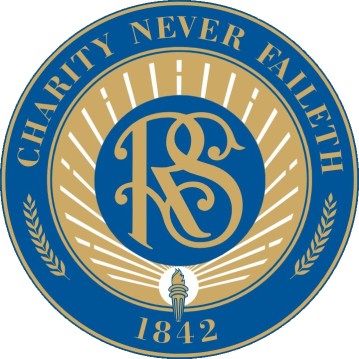It’s March again, which means we’re celebrating not only Women’s History month but also the anniversary of the founding of the LDS Relief Society. (It coincides with St. Patrick’s Day, so be sure to wear green as you go out and do your charitable works.)
I don’t know about you, but I carry around a whole mess o’guilt about my visiting teaching assignments for Relief Society. If I’m not visiting, I feel guilty about that. If I am visiting regularly, I feel like I could always be doing more to make my assigned sisters feel loved and welcomed without crossing that line into making them suspect they’re some kind of project.
But the most important part of the VT program is just showing up. Listening. Being the kind of person someone could and would call in a crisis. As guest blogger Mette Harrison points out in this heartfelt post, not all of us think we need to have a visiting teacher — until we really, really do.
A guest post by Mette Ivie Harrison
In Mormonism, each woman is assigned to be a “visiting teacher” to visit at least one other sister in the ward, which means contacting her monthly, befriending her and bringing an inspiring message. Visiting teachers are asked to report each month on the welfare of their sisters.
While this may sound a bit creepy and “Big Brother-ish” to those outside of Mormonism (and perhaps those trying to leave Mormonism), it is meant to be a way to make sure that everyone is cared for and looked after, that every woman has a friend she can count on in an emergency or just when she feels down.
It’s also, to be honest, one of the reasons I love the Relief Society organization within Mormonism, which is by necessity a feminist organization. Women are in charge, women are being served, and women help each other without men intervening really at all.
When I first graduated from the Young Women’s organization into Relief Society, I admit, I felt awkward calling up adult women I did not know and asking them if they could set aside an hour or more for me and my companion to come over and talk to them. I felt uncomfortable bringing spiritual messages to women who were older and far more experienced than I was in life and in the Church.
And honestly, it felt like a waste of time to me. As a college student at the time, I wasn’t depressed, had work to keep me busy, and did not yet have children. So I rarely set up appointments or read the message and basically made my companions do almost all of the work.
It wasn’t until nearly twenty years later, when I was depressed and had little contact with anyone outside of my young children that I really understood how important visiting teaching was. My own teacher went on several long walks with me and listened to me talk about my suicidal thoughts. She asked me if I would promise to throw away some of the pills I fantasized about overdosing on, and I did.
I don’t know if my visiting teacher literally saved my life, but she very well may have. She also told me some personal things about her own life that coincided with my own and made me feel much less alone.
During this time I also had come to some serious doubts about the existence of God. But instead of becoming less dutiful as a visiting teacher, I became more so. I began to see that visiting teaching was something I needed. When I stopped worrying about what God wanted me to do and started to think about what I wanted to do, visiting teaching started going higher and higher on the list. I noticed that when I visited other women, my day was happier. I needed that social contact. I needed to feel like I was a part of other people’s lives. I needed to feel like I had done what I’d been asked to do, even if it was a small thing. I needed to feel useful.
Relief Society wasn’t intended just to help women who were older and disconnected from family, women who were ill or shut-in, or women who were poor or abused and needed direct intervention by members of the church. It was also for people who, like me, were well-educated, had employment and children, and attended church on a weekly basis.
Ironically, I am now the visiting teacher of the woman who visit taught me and saved my life. She called up the Relief Society President and said that I was the best visiting teacher she had ever had because I would sit and listen to her for as long or as short a time as she needed, because I ALWAYS came, and I helped her with good advice.
It is enormously gratifying to me that I can return the favor, that I can be the person that someone else needs.
 Mette Ivie Harrison is the author of the new mystery novel The Bishop’s Wife and many other books. Click here to listen to an NPR interview about the book and read an excerpt.
Mette Ivie Harrison is the author of the new mystery novel The Bishop’s Wife and many other books. Click here to listen to an NPR interview about the book and read an excerpt.
We’re lucky to have her as a monthly guest blogger at Flunking Sainthood; you can read her introductory post here.








